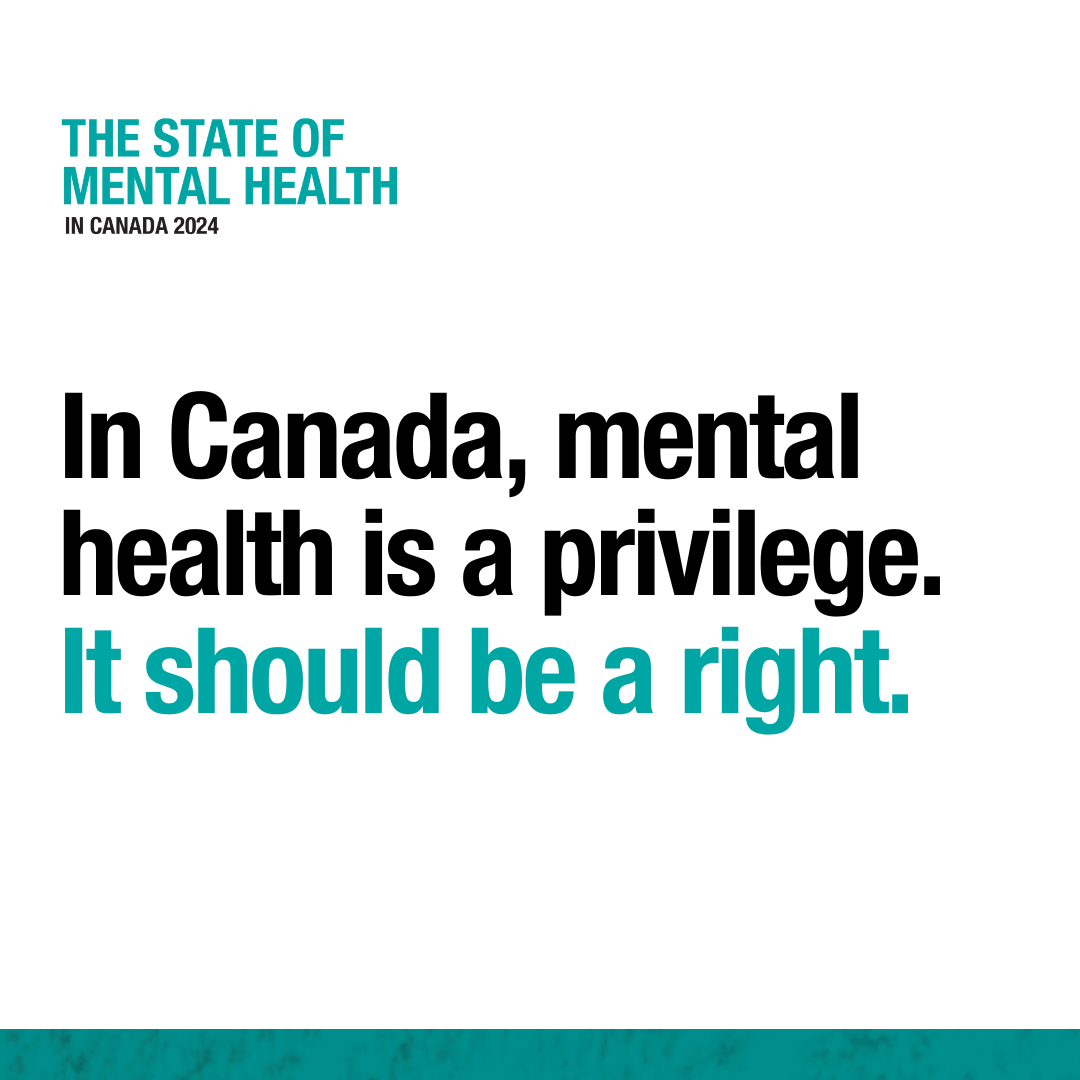Through a first-of-its-kind report, the Canadian Mental Health Association (CMHA) is providing an in-depth look at the mental health system in Canada—with all its cracks and failings— and how people are faring, in every province and territory. What it reveals is troubling.
Among the findings of The State of Mental Health in Canada 2024 is that no jurisdiction is spending enough on mental health, in part because they’re not obliged to. Provinces and territories are only spending an average of 6.3% of their overall health budgets on mental health, which leaves Canada lagging behind many peer countries (15% in France, 11% in Germany, 9% in the UK and Sweden). This doesn’t even meet the level of spending called for in Canada’s own, stale-dated mental health strategy.
In 2024-2025, mental health accounted for 5.9% of budgeted health care spending in Ontario (compared to the national average of 6.3%)
In total, this deep-dive report showcases 24 indicators of the state of mental health in Canada, from how much is being spent on care, to rates of suicide and levels of discrimination against people with mental health concerns—all broken down province and territory. The most recent statistics from the report show that the mental health of Canadians is three times worse than before COVID-19 and millions of people can’t get the care they need.
As it stands, accessing mental health care in Canada is often a privilege when it should be a fundamental right. CMHA’s report shows that millions of people in need of support aren’t getting it—an alarming reality with real consequences.
However, The State of Mental Health in Canada 2024 also highlights promising innovations, like universal, publicly funded mental health care in Nova Scotia, significant investments in mental health promotion in B.C., addictions treatment in Alberta, mobile crisis teams across three provinces, and Inuit paraprofessionals providing culturally appropriate care in Nunavut. And through a series of actionable recommendations, this report gives decision makers a roadmap to better mental health care.
“Mental health has been profoundly neglected under universal health care since Medicare was introduced forty years ago,” said Sarah Kennell, National Director of Public Policy, CMHA. “Six federal governments in a row have failed to deliver free, universal mental health care and Canadians are living with—and sometimes dying from—the consequences.”
CMHA is calling on the federal government to write mental health care into federal law. The federal government must also prioritize the mental health and well-being of Canadians by investing 12% of health care spending in mental health, addictions, and substance use services. By doing so, we can support a future where mental health care is a fundamental right for everyone.
For more information about the report and to learn about the state of mental health in your community, please visit cmha.ca/somh.
Key statistics from the State of Mental Health in Canada 2024:
- Ontario will spend approximately $2 billion on mental health in 2024-25, which amounts to 5.9% of the overall health budget. They should be spending 12%.
- 5 million people with mental health needs in Canada reported that they weren’t getting adequate care. That’s about equal to the population of Manitoba and Saskatchewan combined.
- Canadians report having “poor” or “fair” mental health three times more often than before the pandemic (26% in 2021 compared to 8.9% in 2019).
- An alarming 38% of Indigenous Peoples reported their mental health was “poor” or “fair.
- Fifty-seven percent (57%) of young people (aged 18-24) who had early signs of a mental illness said that cost was an obstacle to getting mental health services.
- Only 50% of people with mental health disabilities are employed and a significant number who aren’t, depend on income supports that keep them in poverty.
- Canada is failing to collect key information about the mental health system and population mental health, while existing data is variable in quality and coverage across the country.

